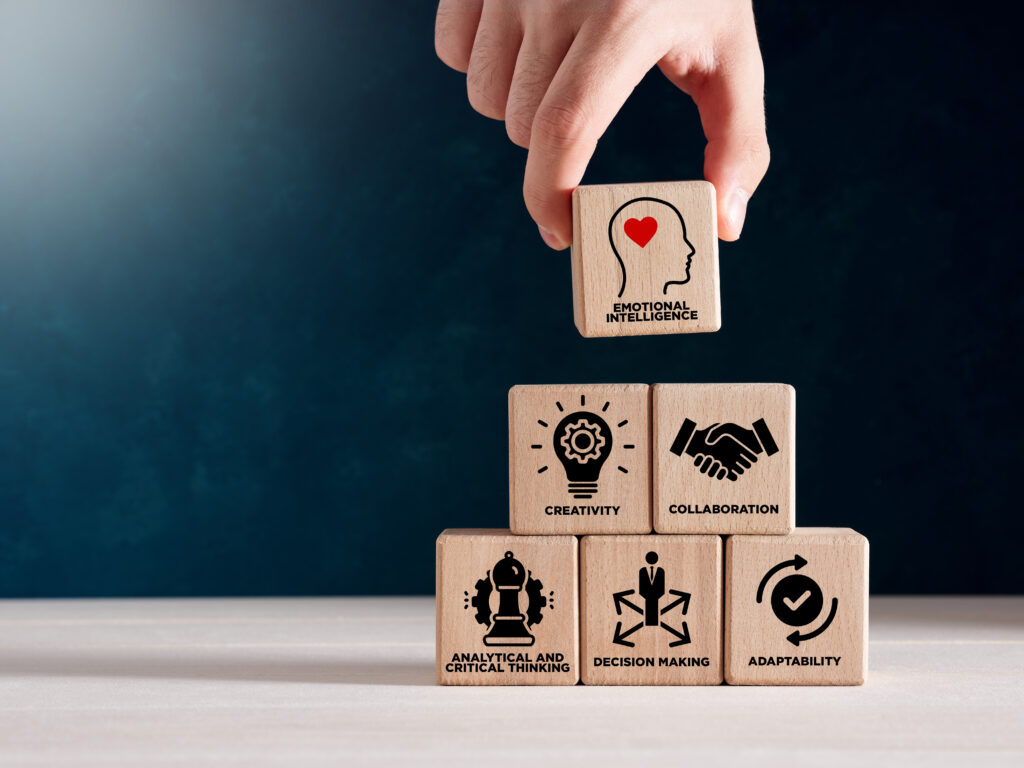In the ever-evolving landscape of leadership, one quality consistently stands out as a game-changer: emotional intelligence (EI). While technical skills, strategic thinking, and decision-making are vital to leadership, it is emotional intelligence that bridges the gap between good and exceptional leadership. Emotional intelligence is the ability to understand and manage not only your own emotions but also those of others. For leaders, this skill is indispensable in building stronger teams, fostering trust, and creating a positive and productive workplace.
Over the years, I’ve seen firsthand how emotional intelligence can transform leadership dynamics. It’s not just about getting the job done—it’s about how we connect, inspire, and lead with empathy and understanding. Let’s explore why emotional intelligence is crucial for leadership and how it can be cultivated to build stronger teams and foster trust.
Understanding Emotional Intelligence
Emotional intelligence is often broken down into five key components: self-awareness, self-regulation, motivation, empathy, and social skills.
- Self-awareness: This is the foundation of emotional intelligence. It involves understanding your own emotions, strengths, and weaknesses and recognizing how they impact your behavior and decision-making.
- Self-regulation: Leaders who can regulate their emotions maintain composure, especially during stressful or challenging situations. This helps prevent emotional outbursts or rash decisions.
- Motivation: A strong sense of purpose and intrinsic motivation drives leaders to inspire their teams and persevere in the face of challenges.
- Empathy: Understanding and sharing the feelings of others is crucial for building trust and fostering meaningful relationships.
- Social skills: Effective communication, conflict resolution, and relationship-building are essential for navigating the complexities of team dynamics.
When leaders prioritize emotional intelligence, they create an environment where people feel valued, understood, and empowered to contribute their best work.
Building Stronger Teams with Emotional Intelligence
Leadership isn’t just about guiding a team to achieve goals; it’s about creating a culture where collaboration and innovation thrive. Emotional intelligence plays a pivotal role in this process.
1. Fostering Open Communication
Leaders with high emotional intelligence actively listen to their team members, encourage open dialogue, and create a safe space for sharing ideas and concerns. When people feel heard, they are more likely to engage fully and contribute creatively.
I’ve learned that active listening goes beyond hearing words; it involves understanding the underlying emotions and intentions behind them. Whether it’s a team member expressing frustration or excitement, responding with empathy and clarity strengthens the connection between leader and team.
2. Enhancing Collaboration
Teams are often composed of individuals with diverse perspectives and working styles. Emotional intelligence enables leaders to recognize these differences and find ways to leverage them for the benefit of the group. By understanding each team member’s strengths and challenges, leaders can assign roles and tasks that play to individual strengths while ensuring a cohesive team effort.
3. Resolving Conflicts Effectively
Conflict is inevitable in any team setting, but how leaders handle it can make or break team morale. Leaders with emotional intelligence approach conflicts with a calm and empathetic demeanor. They focus on understanding all sides of the issue and facilitating constructive dialogue to reach a resolution that works for everyone.
Fostering Trust Through Emotional Intelligence
Trust is the cornerstone of any successful relationship, and leadership is no exception. Without trust, teams can become disengaged, communication can break down, and progress can stagnate. Emotional intelligence is essential for building and maintaining trust.
1. Leading with Empathy
Empathy is a powerful tool for building trust. When leaders take the time to understand their team members’ perspectives and show genuine care for their well-being, they create a sense of psychological safety. Employees are more likely to trust leaders who demonstrate compassion and understanding, especially during challenging times.
For example, I’ve found that simply checking in with team members on a personal level—asking how they’re doing or offering support during a tough period—can go a long way in fostering trust and loyalty.
2. Consistency and Integrity
Trust is built when leaders consistently act with integrity. Emotional intelligence helps leaders stay aligned with their values and make ethical decisions, even when faced with pressure. Consistency in words and actions reassures team members that their leader is dependable and trustworthy.
3. Encouraging Vulnerability
Leaders who are willing to show vulnerability—admitting mistakes, sharing lessons learned, and acknowledging their own emotions—foster a culture of openness. This encourages team members to do the same, creating an environment where trust and mutual respect can flourish.
Cultivating Emotional Intelligence
The good news is that emotional intelligence is not an innate trait—it’s a skill that can be developed with practice and intentionality. Here are some ways leaders can cultivate their emotional intelligence:
- Practice self-reflection: Take time to assess your emotions and how they influence your decisions and interactions. Journaling or seeking feedback from trusted colleagues can help.
- Develop mindfulness: Mindfulness practices, such as meditation or deep breathing, can enhance self-awareness and self-regulation.
- Seek out learning opportunities: Workshops, books, and coaching focused on emotional intelligence can provide valuable insights and tools for growth.
- Actively practice empathy: Make an effort to understand the emotions and perspectives of others. This can involve asking questions, practicing active listening, and observing nonverbal cues.
- Build relationships: Invest time in getting to know your team members on a deeper level. Strong relationships are the foundation of trust and collaboration.
Final Thoughts
Emotional intelligence is not just a “soft skill”—it’s a critical leadership competency that drives stronger teams, fosters trust, and enhances overall organizational success. In my experience, leaders who prioritize emotional intelligence not only achieve better results but also create a positive and fulfilling work environment for their teams.
As leaders, we have the opportunity to lead with empathy, self-awareness, and integrity. By doing so, we can inspire others, build resilient teams, and leave a lasting impact that extends far beyond the workplace. Emotional intelligence is not just about managing emotions; it’s about connecting with people on a deeper level and leading with humanity.
